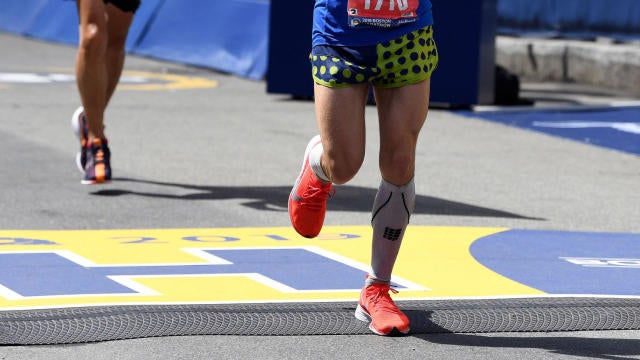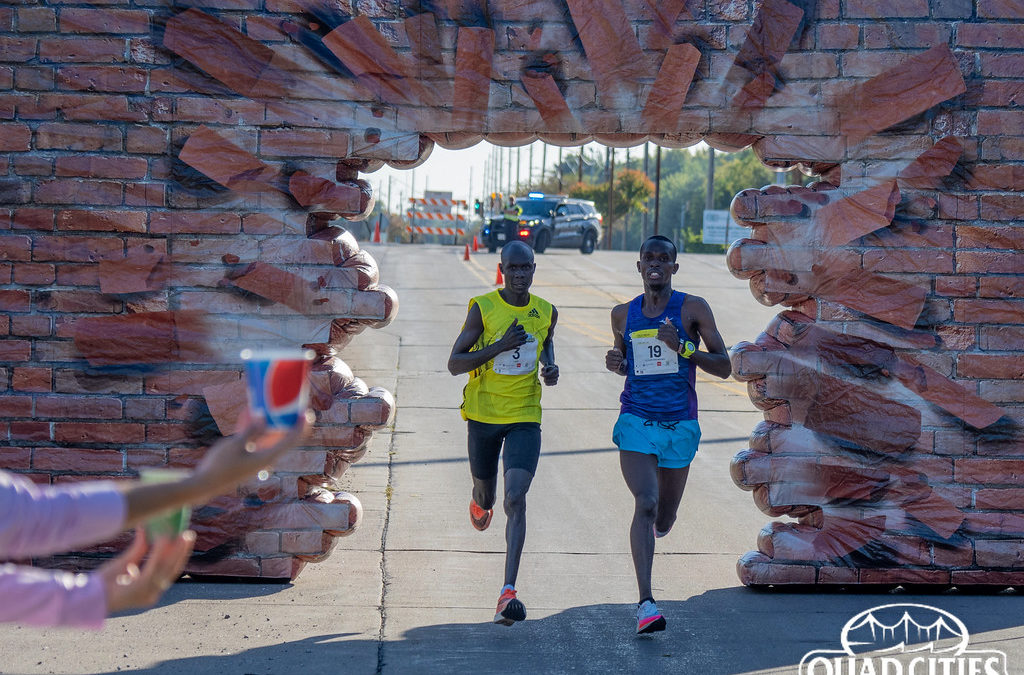Bonne Chance!
 |
| PBS Sports USATSI |
"It was pretty obvious where to go out there so I don't know what went on.""I was about 20 seconds back so I kind of saw it happening but I'm not going to shout. It's not my job.""I obviously came today with no hope of [beating my best time], but sometimes it just comes."Tyler Pence, 28, cross-country coach, University of Illinois Springfield"At that intersection where that incident happened, the course was well-marked.The signage is well displayed. The volunteers are there. And the fourth element is those elite runners have a meeting the day before to get familiar with the course.""I don't want this to be a total loss for them so I think there is going to be some compensation for them.""That shows that we are taking some responsibility ourselves. As race director, I feel somewhat responsible."
Joe Moreno, race director, Quad Cities Marathon race
 | |
| Running Magazine |
What are the chances? Two race competitors a hard-to-beat distance in front of other runners in the competition, one of them aware that he's ahead of his best time, each is just about guaranteed to be winners; one a first-place winner, the other second-place. Which order would be realized was up to chance. And may the best man win. As matters turned out, that win went not to Elijah Mwangangi Saolo or Luke Kibet, two Kenyans entered in the 265.2-mile run, beginning and ending in Moline, Illinois.
These races are open to anyone who qualifies, registers and is accepted. Held annually the fourth Sunday of September, the Quad Cities Marathon is a qualifier for the Boston Marathon; The Big One. The Quad race covers five races, four cities, three bridges, two states, one island. Elijah Mwangangi Saolo's grandfather Joseph Nzau is a Kenyan runner of some repute. He won the Quad-City Times Bix 7 in the 1980s, twice.
Joseph Nzau is his grandson's trainer. They had trained together ahead of the marathon in Santa Fe, New Mexico. Grandson Saolo has become a professional racer of sorts, his wins fund his family's living expenses; he supports his family through running and winning. Many of the races he would normally run were cancelled during the pandemic. Had he won the $3,000 first-place award, it would have been destined for his family's upkeep.
Both Kenyan runners were just about halfway to the finish line and they were clear front-runners. That's when they saw a marathon volunteer on a bicycle turning through Arsenal Island, and so they followed the cyclist. Instead of turning in the direction of the well-marked race route, the runners were led off route. A critical error in direction or judgement, which automatically disqualified the two Kenyans.
And it was when they turned off erroneously, trustingly, that Tyler Pence made the decision, as he watched them veer off the right track, not to alert them to their mistake. It wasn't his job, after all. And he did rather benefit from his instant decision to forge on and forget about what he'd seen. Honour in sports. Clear conscience because, after all, it 'wasn't his job'. And in so doing he became the first American runner in twenty years to win the race.
Joe Moreno informed the local newspaper the route had been properly marked. Furthermore runners experienced in the course had attended a meeting before the race to become familiar with its course. Signage was in place as it was meant to be. When Saolo and Kibet approached the finish line it was explained to them by Moreno they were disqualified for having taken an unofficial route.
And the marathon race volunteer who led the pair off the official track route? "I messed up royally", he said mournfully. Yes, he did. So did several others involved in the race.
/cdn.vox-cdn.com/uploads/chorus_image/image/69916571/AP21270657892054.0.jpg) |
Labels: Losers, Sportsmanship, U.S. Race Marathon, Winner

0 Comments:
Post a Comment
<< Home